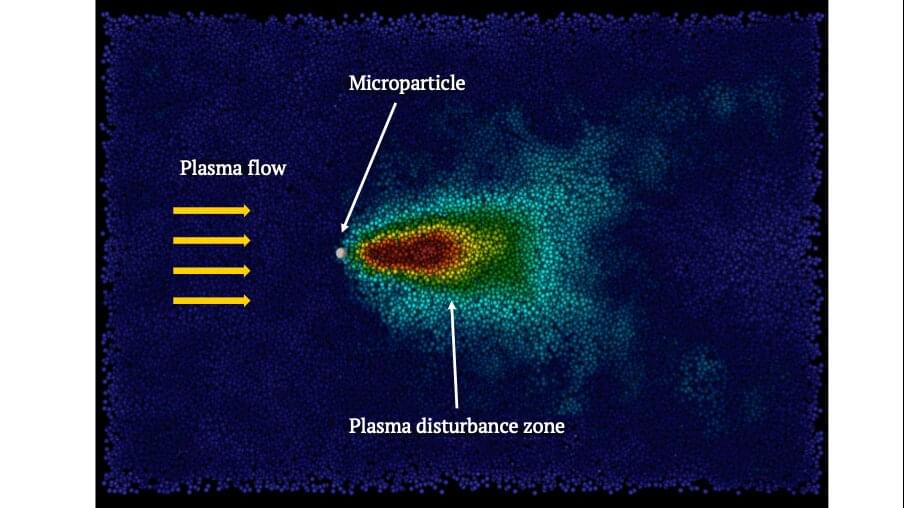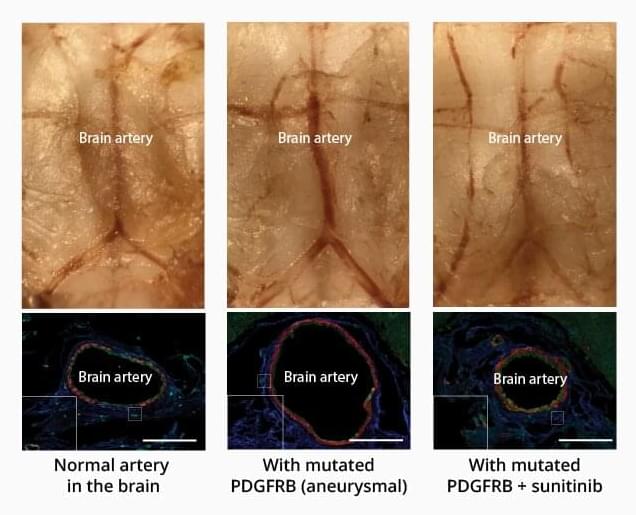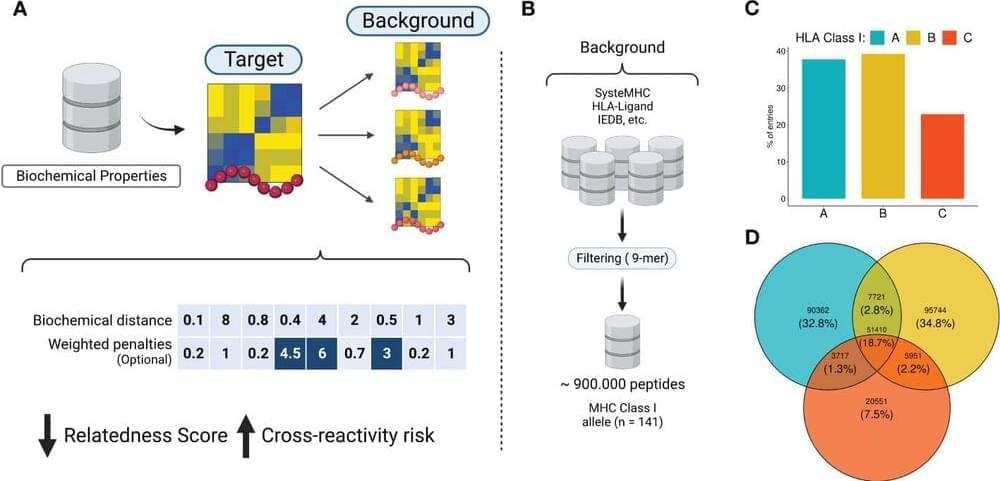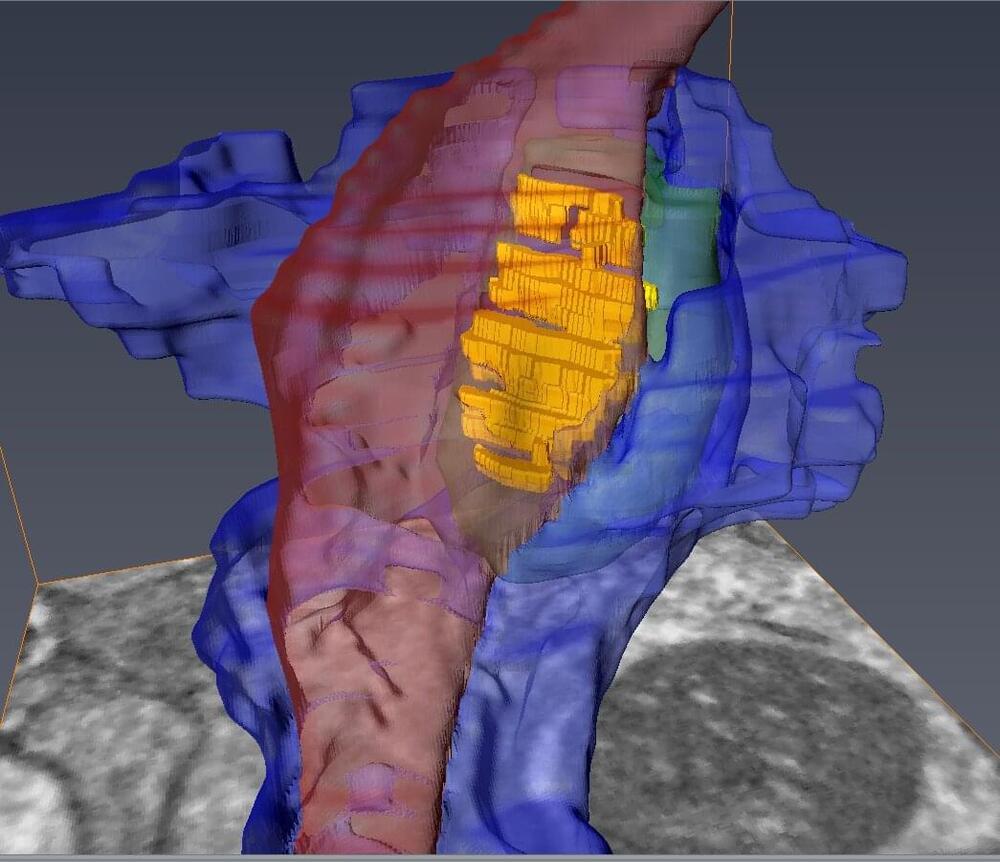Stimulants such as Ritalin and modafinil have a reputation as off-label ‘smart drugs’ that boost cognitive performance. New research suggests they have the opposite effect.



Understanding the mechanisms of interaction between plasma and microparticles is of a critical importance in various fields, including astrophysics, microelectronics, and plasma medicine. A common experimental approach for studying interactions between plasma and microparticles is to place microparticles in a flowing plasma of a gas discharge. In order to achieve a more accurate understanding of the processes occurring in such systems, scientists need fast and efficient tools for calculating forces acting on microparticles in a plasma flow.
Typically, plasma-physicists have to independently develop software tailored to a specific task, which is a significant investment of time and resources. Existing open-source programs frequently encounter challenges related to installation, documentation, and sluggish performance. A group of scientists from the JIHT, the HSE and, MIPT have developed a novel solution: a fast, open-source code which is easy to install and extensively documented.
The outcome—OpenDust—performs ten times faster than existing analogues. In order to accelerate calculations, the algorithm uses multiple GPUs simultaneously.

Researchers at the RIKEN Center for Brain Science (CBS) in Japan have discovered a set of related mutations that lead to intracranial aneurysms—weakened blood vessels in the brain that can burst at any time. The mutations all appear to act on the same biological signaling pathway, and the researchers report the first ever pharmaceutical treatment in a mouse model, which works by blocking this signal. The study was published in Science Translational Medicine.
About 5% of the population have unruptured intracranial aneurysms in blood vessels on the surface of the brain. Despite being ballooned arteries with weakened walls, intracranial aneurysms often go undetected—until a rupture leads to deadly bleeding around the brain.
Even when they are detected in advance, the only currently available treatment options involve surgery, which has its own set of risks, especially if the aneurysm is in a sensitive location. Finding other, non-surgical options is thus a high priority, and research into the origin of intracranial aneurysms has led the RIKEN CBS team to one such potential treatment.

Mitochondria that power cellular activity fragment and change shape in breast cancer cells that migrate to the brain, an adaptation that appears necessary for the cells to survive, UT Southwestern Medical Center researchers report in a new study. The findings, published in Nature Cancer, could lead to new ways to prevent brain metastases, or the spread of cells from primary tumors to the brain.
“Through mitochondrial plasticity, these cancer cells undergo metabolic reprogramming that aids their survival in the brain niche that otherwise would not be available to them. Exploiting this vulnerability could offer a way to prevent brain metastases,” said study leader Srinivas Malladi, Ph.D., Assistant Professor of Pathology at UT Southwestern and a member of the Harold C. Simmons Comprehensive Cancer Center.
Metastatic cancer, which is treated as stage IV cancer, is responsible for the majority of cancer deaths.

In short, data-driven solutions themselves are only part of the overall approach. It is the effective integration of this fast-evolving technology into existing workflows and processes that leads to successful business outcomes.
The first step to integrating AI is identifying places and processes where it can help increase efficiency or accuracy. Businesses should step back and identify their pain points, creating a list of processes that are slow, tedious, cumbersome or suffering from a lack of staff. They should also analyze where additional data or information could help make better decisions.
In the pharma industry, data-driven AI solutions have been widely adopted in sales and marketing processes. For example, by analyzing patient and physician data, electronic medical records and demographic information, AI algorithms can identify trends, patterns and insights that help sales representatives tailor their messaging and presentations to specific HCPs.

Researchers at the University of Houston are working to make T-cell immunotherapy safer, developing a tool called CrossDome, which uses a combination of genetic and biochemical information to predict if T-cell immunotherapies might mistakenly attack healthy cells.
T-cell based immunotherapies hold tremendous potential in the fight against cancer and infectious diseases, thanks to their capacity to specifically target diseased cells, including cancer metastasis. Nevertheless, this potential has been tempered with safety concerns regarding the possible recognition of unknown off targets displayed by healthy cells.
In one case, scientists created special T-cells that were supposed to target a protein found in a type of skin cancer called melanoma. However, these T-cells also ended up attacking a different protein found in the heart cells of some patients. This caused severe damage to the heart.

A team of researchers in the United States and United Kingdom say they have created the world’s first synthetic human embryo-like structures from stem cells, bypassing the need for eggs and sperm.
These embryo-like structures are at the very earliest stages of human development: They don’t have a beating heart or a brain, for example. But scientists say they could one day help advance the understanding of genetic diseases or the causes of miscarriages.
The research raises critical legal and ethical questions, and many countries, including the US, don’t have laws governing the creation or treatment of synthetic embryos.

Scientists have created one of the most detailed 3D images of the synapse, the important juncture where neurons communicate with each other through an exchange of chemical signals. These nanometer-scale models will help scientists better understand and study neurodegenerative diseases such as Huntington’s disease and schizophrenia.
The new study appears in the journal PNAS and was authored by a team led by Steve Goldman, MD, Ph.D., co-director of the Center for Translational Neuromedicine at the University of Rochester and the University of Copenhagen. The findings represent a significant technical achievement that allows researchers to study the different cells that converge at individual synapses at a level of detail not previously achievable.
“It is one thing to understand the structure of the synapse from the literature, but it is another to see the precise geometry of interactions between individual cells with your own eyes,” said Abdellatif Benraiss, Ph.D., a research associate professor in the Center for Translational Neuromedicine and co-author of the study. “The ability to measure these extremely small environments is a young field, and holds the potential to advance our understanding of a number of neurodegenerative and neuropsychiatric diseases in which synaptic function is disturbed.”

People in the earliest stage of Alzheimer’s disease—after brain changes have begun but before cognitive symptoms become apparent—harbor an assortment of bacteria in their intestines that differs from the gut bacteria of healthy people, according to a study by researchers at Washington University School of Medicine in St. Louis.
The findings, published June 14 in Science Translational Medicine, open up the possibility of analyzing the gut bacterial community to identify people at higher risk of developing dementia, and of designing microbiome-altering preventive treatments to stave off cognitive decline.
“We don’t yet know whether the gut is influencing the brain or the brain is influencing the gut, but this association is valuable to know in either case,” said co-corresponding author Gautam Dantas, Ph.D., the Conan Professor of Laboratory and Genomic Medicine. “It could be that the changes in the gut microbiome are just a readout of pathological changes in the brain. The other alternative is that the gut microbiome is contributing to Alzheimer’s disease, in which case altering the gut microbiome with probiotics or fecal transfers might help change the course of the disease.”
Scientists have developed a pill-shaped, swallowable camera that can be controlled by physicians once ingested to help doctors diagnose digestive issues.
Ingestible pill-shaped endoscopes are not a new idea. Last year, PetaPixel reported on the Pillcam which is just such a device, but it had limitations just like all other swallowable pill cameras: doctors can’t control it once it is ingested.
Traditional pill cameras are driven only by gravity and the natural movement of a subject’s body, which limits what doctors can actually see. That is poised to change as scientists from George Washington University have developed a first-of-its-kind system that allows physicians to remotely “drive” a pill capsule through all the regions of the stomach to see and photograph potential problem areas.